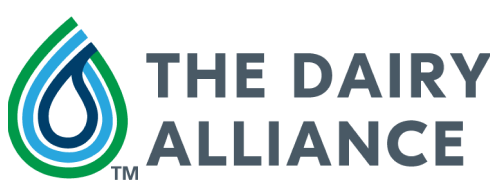Check Out Southeast University Dairies Like Virginia Tech
Did you know there are 67 animal and dairy science programs at accredited universities across the Southeast that will prepare you for a career in the dairy industry? Degrees from animal science to agribusiness have prepared numerous professionals that work across the industry today. Not to mention the hands-on experiences required to obtain these degrees, such as interning on a working farm, research in a lab, or working part-time on the university dairy.
We asked Virginia Tech (VT) graduate students to share their experiences on the university's dairy. Here is what they had to share:
Hailey Galyon, Ph.D. Student, School of Animal Sciences, Virginia Tech
Dairy Complex at Kentland Farm, Virginia Tech
What led you to work at the university dairy?
“Before undergrad, I had no prior experience with dairy cattle. However, through my undergraduate work here at Virginia Tech, I was exposed to dairy cattle through handling courses and introductory courses about the industry. I fell in love with cows and research and decided to pursue graduate school instead of veterinary school as originally intended. I learn more every day I am at the farm, the staff are great and always accommodating. My positive experience here has led me to stay at Virginia Tech for my B.S., M.S., and now Ph.D.!”
What is one thing you want non-ag students to know about the dairy?
“The cows are always taken great care of by our management team. The College of Veterinary Medicine works closely with the dairy to ensure all cows are happy and healthy.”
What does your average day look like working on the dairy?
“I don't specifically work on the dairy day-to-day as a graduate student. Rather, when I do have a project on the farm, I oversee the health and well-being of cows in my study and ensure they receive adequate nutrition through specifically formulated diets to test various hypotheses. I mentor several undergraduate students and get them involved in taking forage samples, milk samples, rumen content samples, and blood samples to aid in the understanding of forage utilization and dairy cattle production.”
Mark Ellett, Ph.D. Candidate, School of Animal Sciences, Virginia Tech
Dairy Complex at Kentland Farm, Virginia Tech
What led you to work at the university dairy?
“I started working as an undergraduate research assistant in 2017 and fell in love with the cows and the research. I started grad school in 2019 and have been either giving tours or conducting research at the dairy ever since. Now, I’ve been at VT for nearly 10 years, and love it. The School of Animal Sciences is a home to me, and I’ll miss being here when I go to my next job. I love the animals, but the people are awesome as well. The faculty and staff I’ve worked with encourage personal growth and prioritize development of critical thinking skills. I am truly thankful for the decision to pursue my undergraduate and graduate degrees at VT.”
What does your average day look like working on the dairy?
“My days at the dairy have changed a lot over the past few years. Currently, I start by collecting data on heifers enrolled in a research project. Then, I usually spend an hour or so watching and interacting with them before heading home.”
How do you juggle schoolwork and working at the dairy?
“Since starting graduate school, working at the dairy has been a part of my schoolwork. They are not mutually exclusive for me, so I don’t see it as something I have to juggle. I will say that going to the dairy is usually a highlight in my day though. The cows make the schoolwork a lot more fun!”
Kayla Alward, Ph.D, Postdoctoral Research Associate, School of Animal Sciences, Virginia Tech
Dairy Complex at Kentland Farm, Virginia Tech
What led you to work at the university dairy?
“As a graduate student in dairy science, the VT Dairy complex was essential to my graduate research and allowed me to find answers to problems the dairy industry faces that cannot be examined using only a commercial dairy farm. The dairy is a HUGE asset in allowing students hands-on learning opportunities and investigating methods for more sustainable dairy practices and cutting-edge research.”
What is one thing you want non-ag students to know about the dairy?
“Dairy faculty and graduate students constantly give tours of the dairy to everyone from kindergarteners to adults who can see not only how a dairy operates, but the research facilities we have and how we investigate solutions to problems that the dairy industry faces.”
Dr. Kristy Daniels, Associate Professor Animal Systems Biology, School of Animal Sciences, Virginia Tech (Alumna, ’08)
Dairy Complex at Kentland Farm, Virginia Tech
How can someone get involved at the dairy? What programs do you offer?
“I really enjoy working with undergraduate researchers. My lab typically has one or two on payroll most of the year. Typical responsibilities are: feeding cattle, recording feed intake, obtaining measurements, and collecting, processing, and storing samples. Often an initial stint as a paid researcher evolves into the student conducting a semi-independent project and presenting their findings at a scientific meeting. An entry-level position as an undergraduate researcher is very often a gateway to graduate or professional school.”
What is one thing you want non-ag students to know about the dairy?
“You can be successful in the dairy industry without having a background in working with cows or agriculture. A willingness to learn and a desire to contribute is about all it takes. Our program is here to support everyone.”







